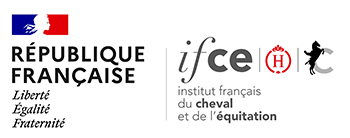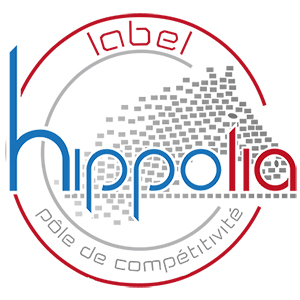The only six-year degree course in France dedicated to the equine industry
The aim of the Advanced-Master program®️ in Equine Science and Business (MESB) is to train generalist, multi-skilled executives with in-depth knowledge of the equine industry, recognized for their expertise in the structuring, development and growth of the industry's economic activity in France and abroad.


With more than 66,000 direct jobs and an estimated economic impact of over €12 billion per year, the equine sector is a dynamic pillar of agriculture and rural areas in France, particularly in Normandy, a region renowned for horse breeding and promotion. It encompasses a wide range of activities: breeding, horse racing, equestrian sports, tourism, dedicated agricultural production, animal health, and technical innovation, while contributing to rural vitality and ecological transition.
The Specialized Master's® in Equine Science and Management (MS MESB) was designed in close collaboration with the main players in the sector: federations, institutions, parent companies, businesses, and competitiveness clusters. This unique program, focused on immersive, hands-on learning, aims to equip future managers in the equine industry with the dual scientific and managerial skills essential to supporting the sector's transformation and development. Accredited by the Conférence des Grandes Écoles, the MS MESB trains passionate, committed, innovative leaders who are connected to the realities and opportunities of the equine sector in France and internationally.
Born of the collective will of recognized professionals, researchers and the Hippolia competitiveness cluster, the Specialized Master®️ in Equine Science and Business (MESB) is based on three principles:
- The ambition to contribute to the development of the industry,
- A passion for horses,
- Dual skills in science and management in an international context
- Through targeted courses, collaborative projects, visits to different types of industry players and an international assignment, students acquire comprehensive expertise in the world of horses.
The four-month in-company assignment is the practical anchor, enabling direct application of knowledge in a real-life professional context, reinforcing operational skills.
Now managed by UniLaSalle & supported by Hippolia, the only French competitiveness cluster in the horse industry, MS®️ MESB benefits from the experience, networks and academic and research expertise of both the institute and the cluster.

Discover the detailed program of the Advanced-Master program® in Equine science and business
campus (Rouen)
dual skills in science & management in an international context
unique training in France supported by Hippolia
What careers are available after completing the MESB Advanced Master program?
Holders of the Master's degree in Equine Management (MS) stand out for their versatility and ability to work in all segments of this rapidly changing industry. As generalists, they are skilled at managing the complex interactions between a variety of activities, diverse companies, and related growth sectors (breeding, equestrian practices, heritage promotion, sustainability).
This multidimensionality is essential in an environment where organizations require professionals capable of wearing several hats: project management, innovation, team management, and strategic leadership, as well as specific professional skills related to equine sciences. Thanks to their cross-disciplinary skills (adaptability, project management, negotiation, scientific expertise), these managers can evolve throughout their careers, ensuring a bridge to other professions or sectors in high demand, while meeting the growing needs for structuring and innovation within the equine sector.
The following positions are available upon completion of the certification:
- Project and development manager, including international relations, for an institution or equine company (R&D, equipment manufacturers, equine health, equestrian center, stud farm, etc.)
- Research manager in institutions/parent companies in the sector
- Marketing/communications strategy manager for an equine company (R&D, equipment manufacturers, equine health, equestrian center, stud farm, etc.)
- Equine facility manager, stud manager, or race manager
- Veterinary clinic manager/insemination center manager
- Entrepreneur/consultant/business owner in the equine sector
Head of Mission / Project Manager
The head of mission/project manager of an institution (sports federation, equine institute, parent company), company, or association dedicated to equestrian activities is responsible for managing development projects generally focused on communication and events, often with an international dimension.
They may be responsible for this same structure, for example as a department head in a local authority or within a regional horse or breed promotion council, in which case they will be required to supervise teams and contribute to strategy development, as well as being responsible for financial management. Key roles such as mission leader or project manager require the ability to coordinate and lead teams while being autonomous in strategic decision-making.
These responsibilities involve managing and supervising complex projects, managing resources, and taking overall responsibility for their success. Some positions are more research-oriented, or focused on design or development engineering. The main tasks remain the same, but the activities include a research dimension often linked to innovation or societal issues related to the equine sector. A critical analysis of the environment in which the company operates enables the development of innovative and forward-looking concepts, services, or products for the equine sector.
Research officers therefore work in institutions such as the IFCE or INRAE, parent companies in the sector, or private industrial or service organizations with a research and development center.
Head of Sales Strategy and/or Marketing
The person responsible for commercial and/or marketing strategy for various employers in the equine sector manages public relations for the organization or in their area of expertise. They develop and implement the organization's commercial and marketing strategy. They analyze the markets and positioning of the products/services for which they are responsible. A good knowledge of the equine market is essential. The design and implementation of product-related services is often their responsibility. They must adapt to the cultural, economic, and geopolitical specificities of different national or international markets, as the structure of the sector is based on groups that operate internationally. More specifically, sales managers and sales strategy managers are responsible for creating and executing plans to develop sales and expand the reach of equine products in national and international markets. They make major decisions to establish partnerships, manage customer relationships, and ensure profitability.
Marketing managers are autonomous in designing strategies to promote equine products, developing advertising campaigns, and managing brand image, while ensuring alignment with business objectives. Partnership, communications, and events professionals are responsible for creating and maintaining beneficial relationships with partners, the media, and stakeholders. They have autonomy in creating events and communications campaigns aimed at enhancing the organization's visibility and reputation.
Manager/director of an equine facility
Managers/directors of equine organizations (whether associations, private entities, unions, or industry clusters) have significant autonomy to set directions, develop policies, and represent the entities they lead. They are responsible for organization, financial management, and long-term vision, while meeting stakeholder expectations and navigating a complex regulatory landscape (French/European legislation, cross-cutting legislation depending on the framework of practice: Ministry of Youth and Sports, Agriculture, Industry, Transport, Veterinary Association, etc.). The manager of a breeding farm, stud farm, or racehorse stable is often the head of the organization, as the owner of the stud farm is often a passionate financier who is not an expert in the field. Activities are therefore focused on the management of the stud farm, but also on highly technical activities related to equine science (nutrition, reproduction, management of athletic equines, etc.).
Veterinary clinic manager
The veterinary clinic manager is usually a veterinarian specializing in equine care. Experienced equine managers (MS) are responsible for tasks related to the administrative management of the clinic, such as managing the financial and organizational aspects of the clinic (budget control), customer loyalty, and external communication. They may also coordinate the clinic's veterinary and administrative teams by taking charge of scheduling, training, and recruitment. Finally, in conjunction with veterinarians, the clinic manager is responsible for advising owners on the well-being, nutrition, and preventive care of horses. The head of the insemination center is responsible for managing a facility specializing in assisted reproduction for horses. Their responsibilities include managing the center's activities, often involving the distribution of semen; supervising, training, and recruiting staff; developing local professional relationships with breeders and other stakeholders to promote the center; monitoring and implementing procedures in terms of safety, hygiene, and equine welfare standards; and providing technical expertise on various reproduction methods for specialized technicians.
Creator, entrepreneur, business buyer, business owner
Finally, creators, entrepreneurs, buyers, and business leaders in the equine sector have complete autonomy in defining their vision, operational management, and strategic decision-making. Their responsibility encompasses all aspects of the business, from human resources management to financial management and business development. They create and manage their businesses with a focus on innovation and sustainability.
How do I get into the Advanced-Master program® in Equine sciences and business?
Admission requirements
EDUCATIONAL REQUIREMENTS
- Bac+5, French or foreign - graduates of engineering and business schools, management schools and holders of a Master's degree.
- Bac+4 - for candidates with at least 3 years' professional experience.
By way of exception, applications may be considered from :
- holders of Bac+3 with solid professional experience,
- holders of Bac+4 with no professional experience,
- validation of professional experience (VAE, VAP).
REQUIRED QUALIFICATIONS
- Level B2 in English for non-native English speakers
- Level B1 in French for non-native French speakers
- Driving license (B) recommended (many work immersions, particularly in rural areas)
Admission procedure
CALENDAR & ADMISSION PROCESS
The admission process takes place in two stages. Admission results will be communicated in the week following the interview.
1- Administrative & academic analysis
- Administrative validation of the application, followed by a study of academic prerequisites, experience and the coherence of the project with the training program.
- 1 session / month between February and July
2- Bilingual French-English interview by a panel of judges:
- to assess the match between the professional project and the chosen course of study;
- to assess the relevance of the project in terms of professional integration;
- to assess the candidate's skills and reasoning abilities.
Tuition fees
- EU Students – 14900 €
- Non-EU Students – 19900 €
